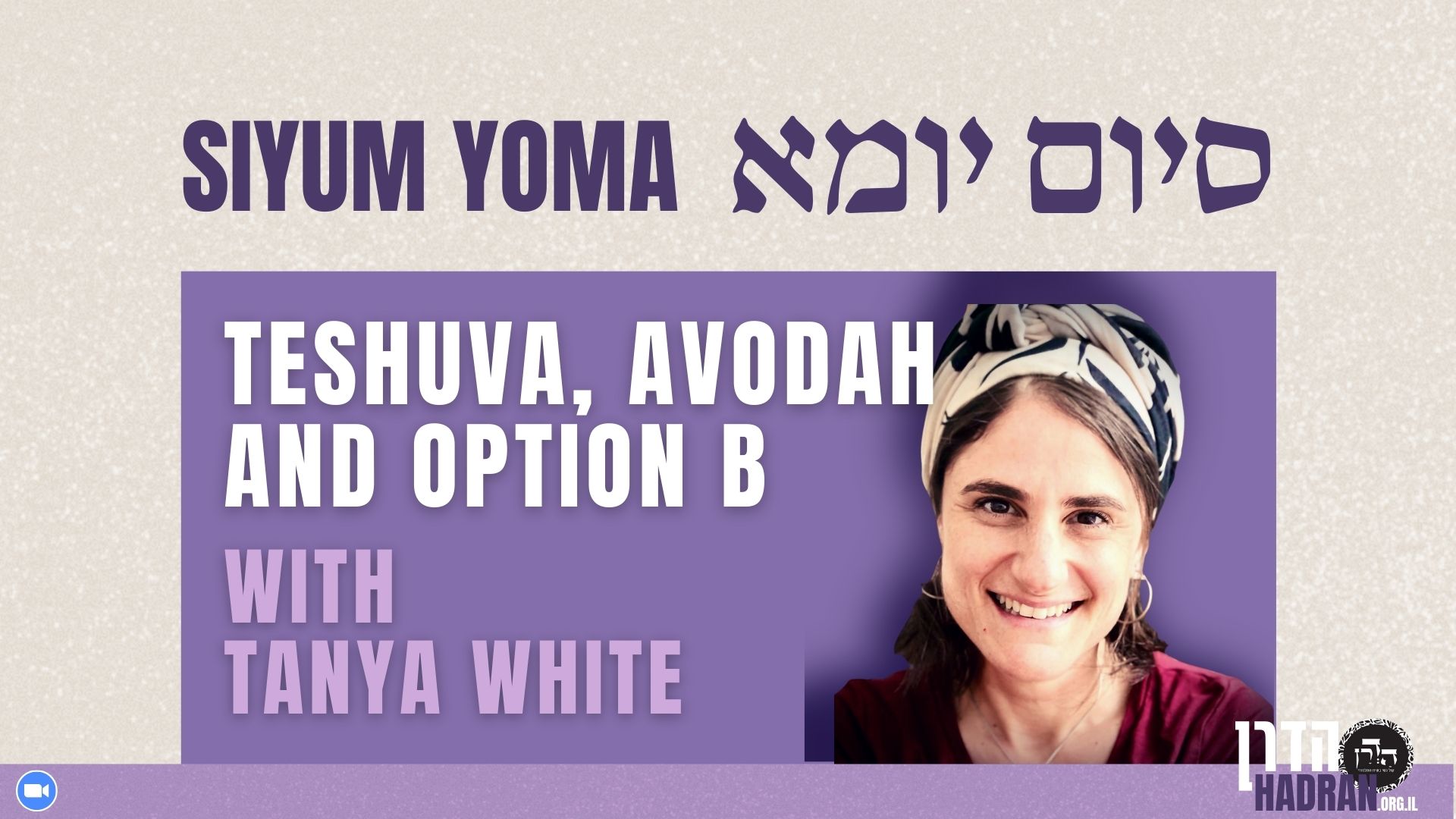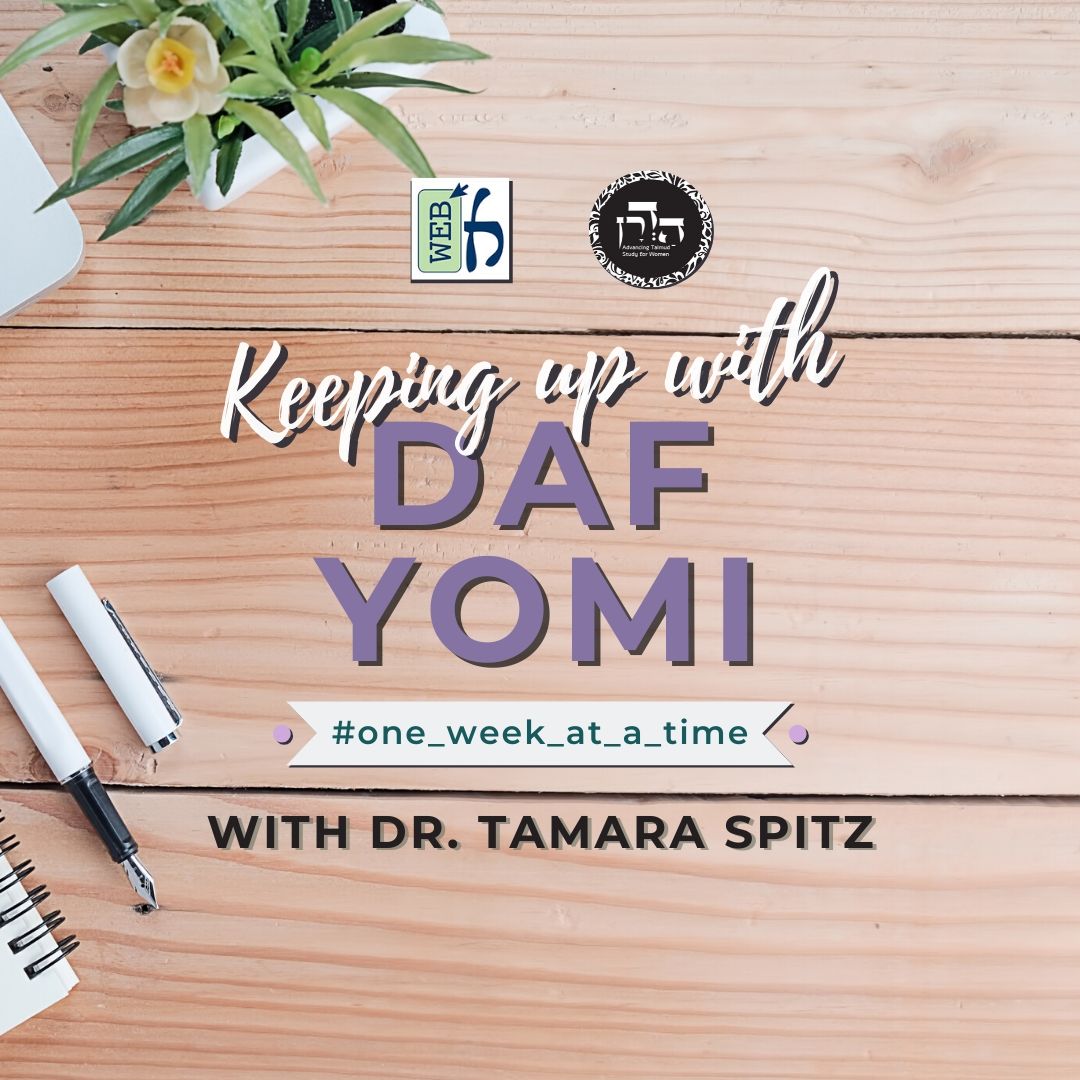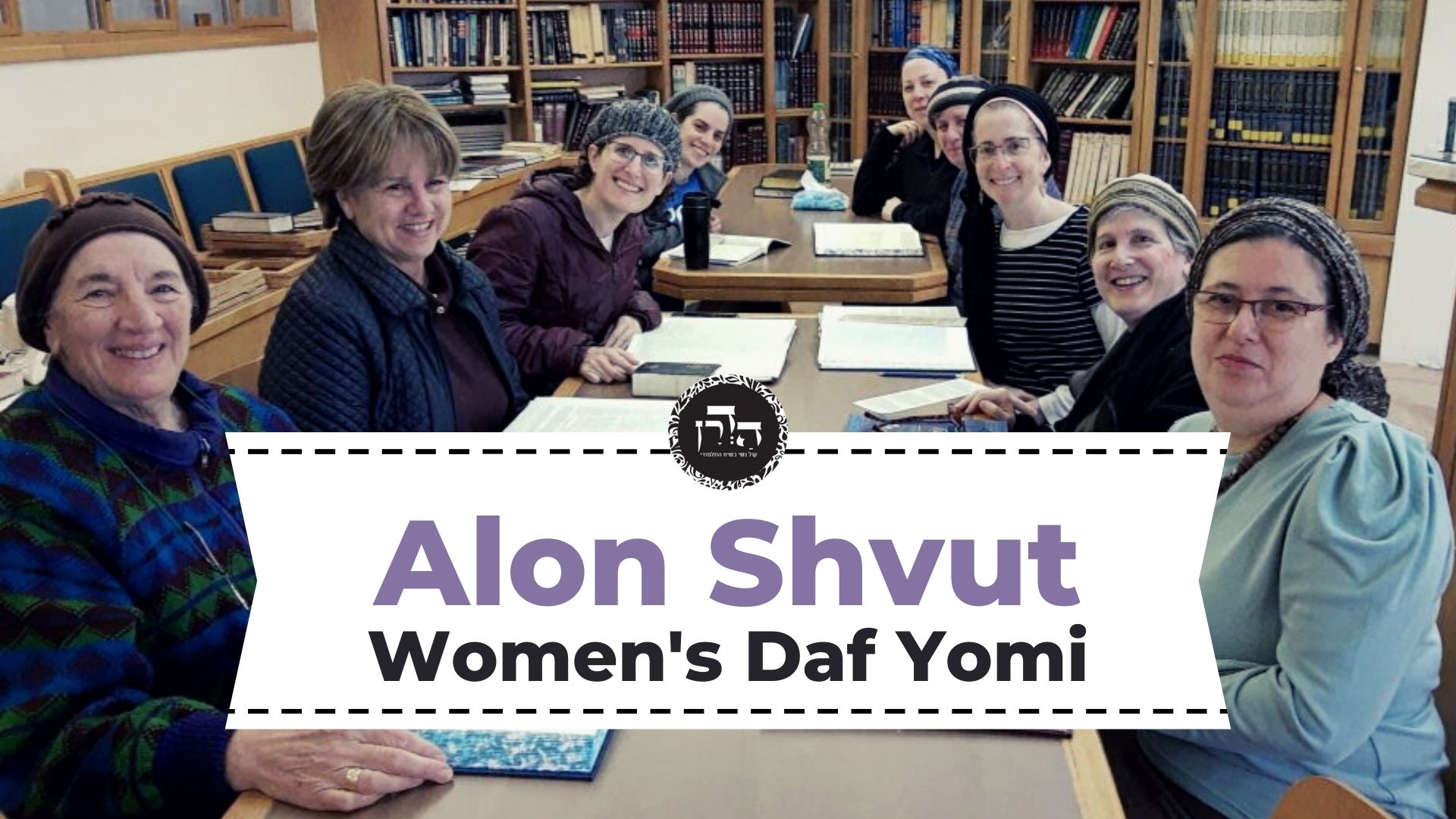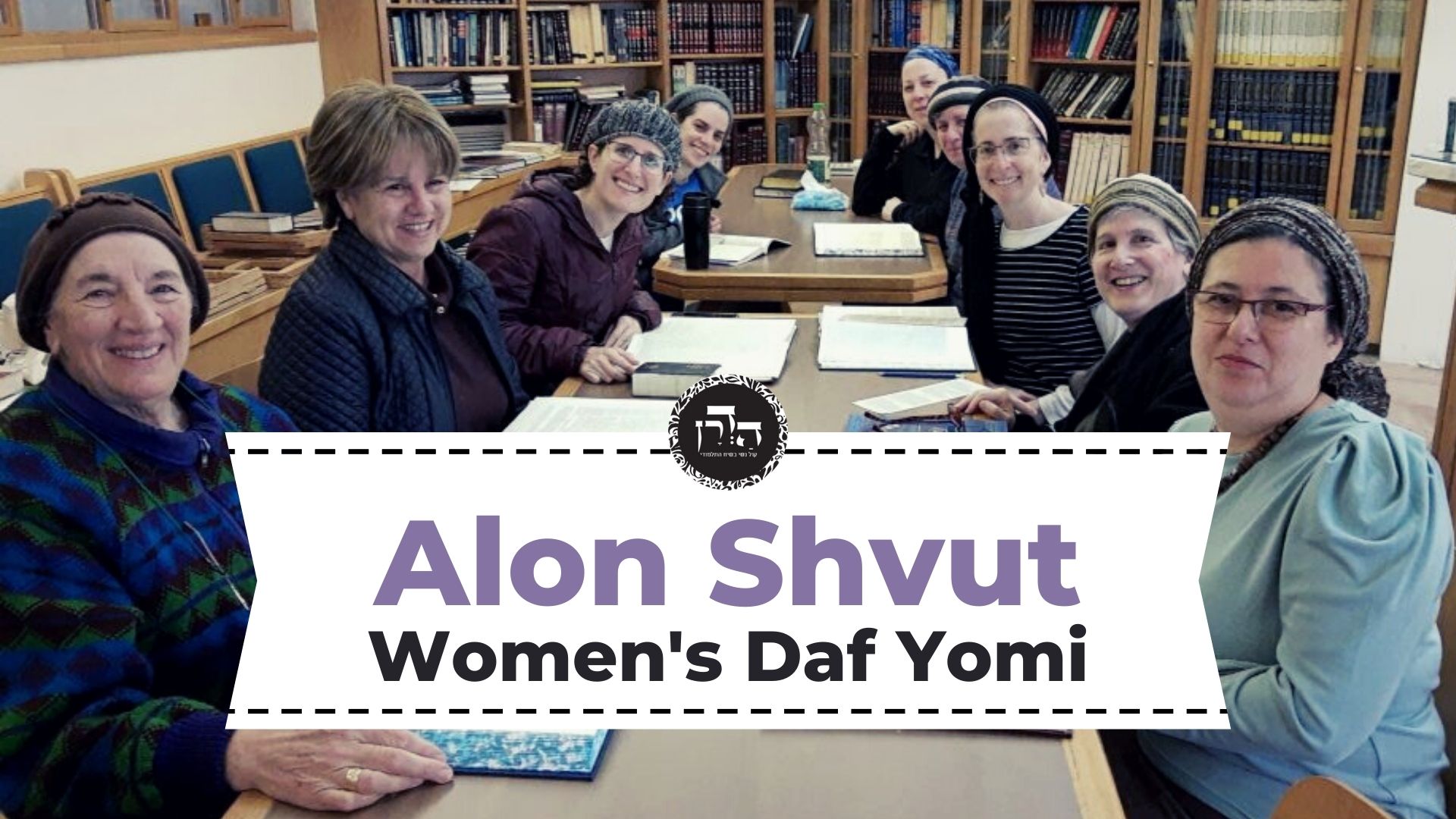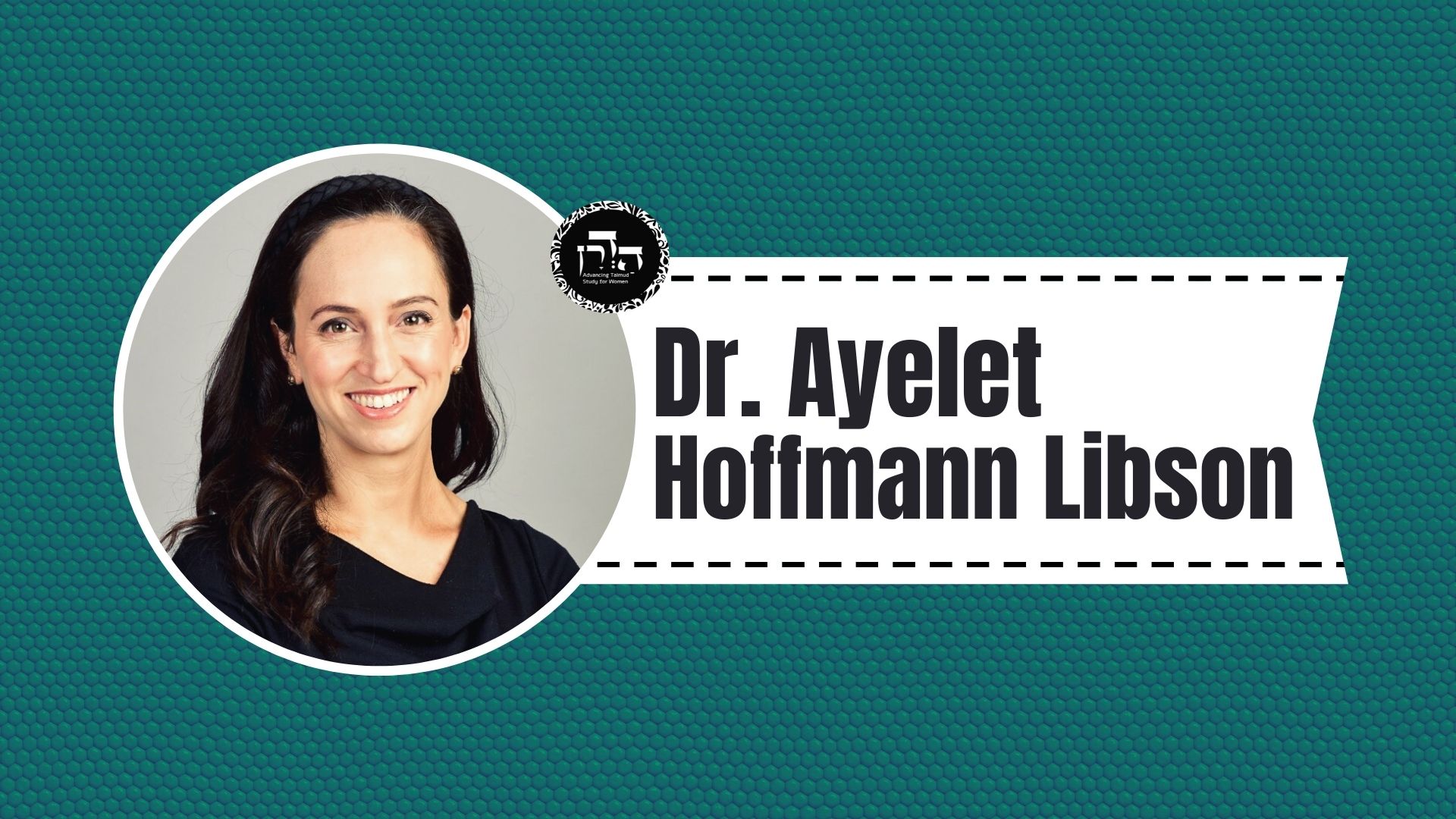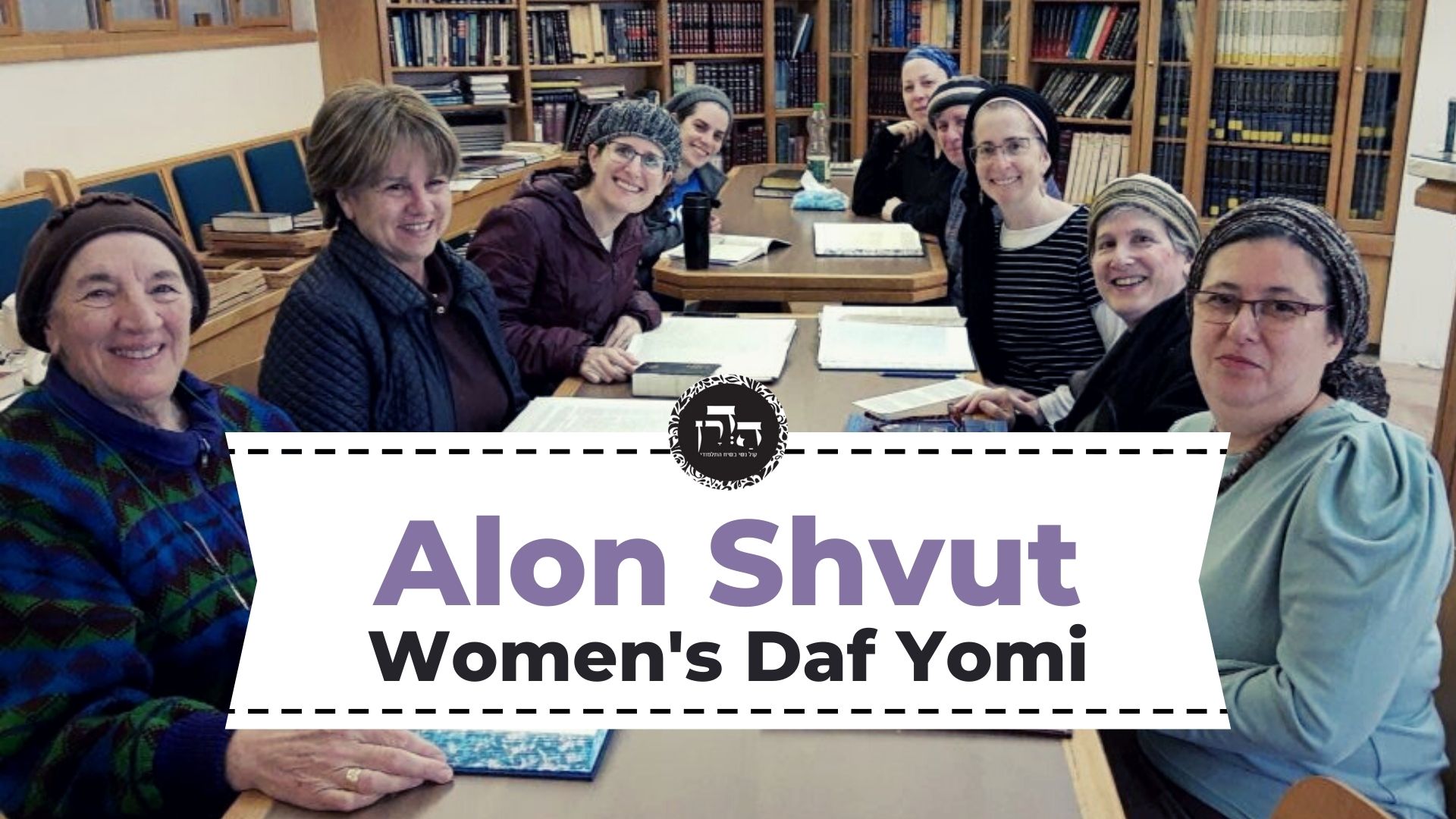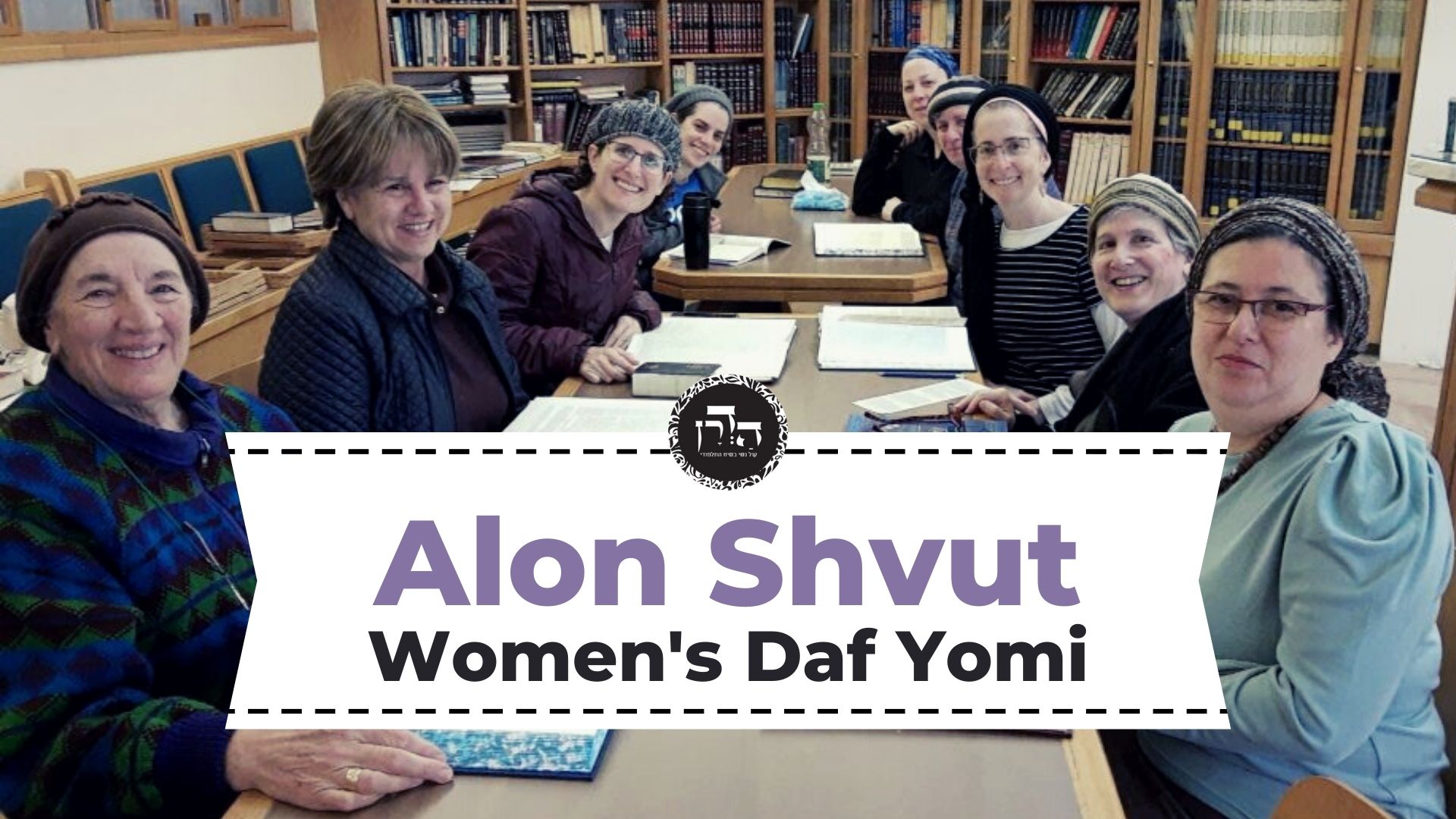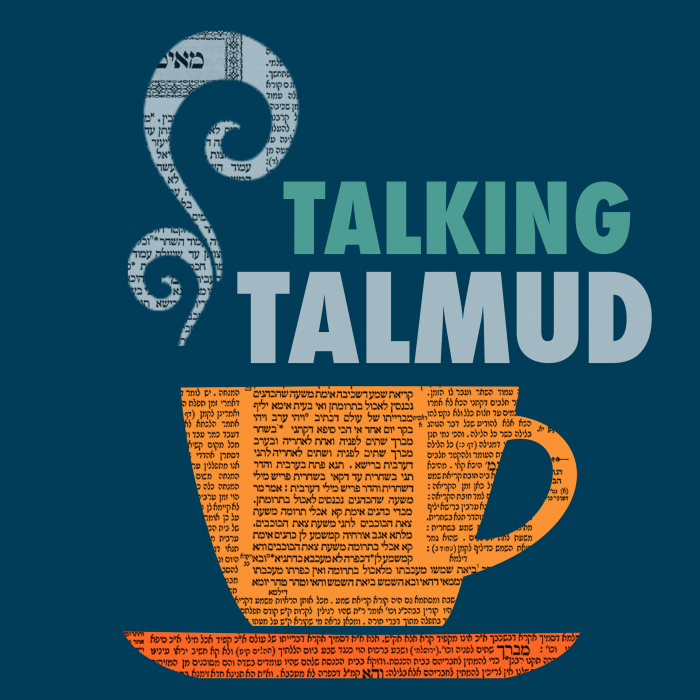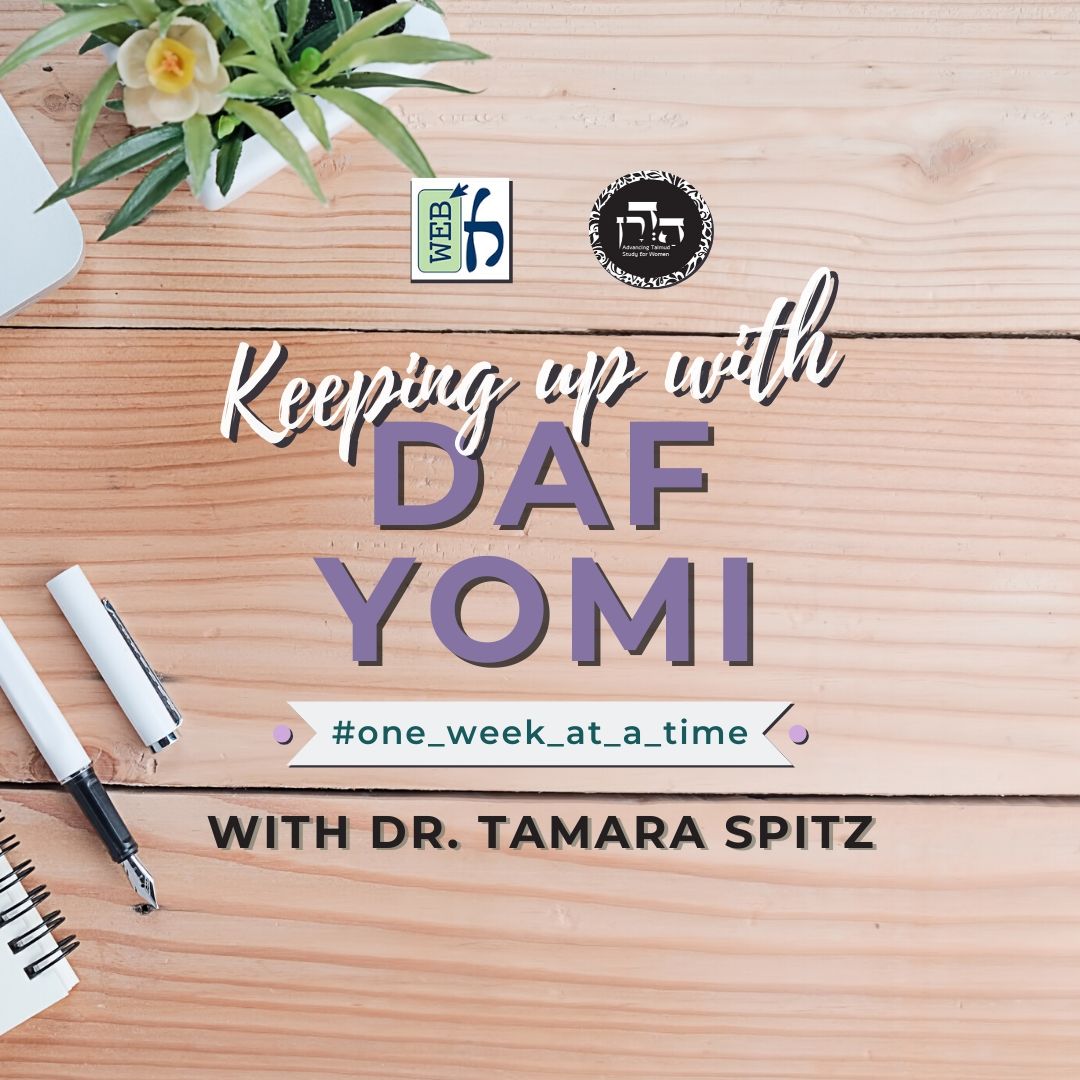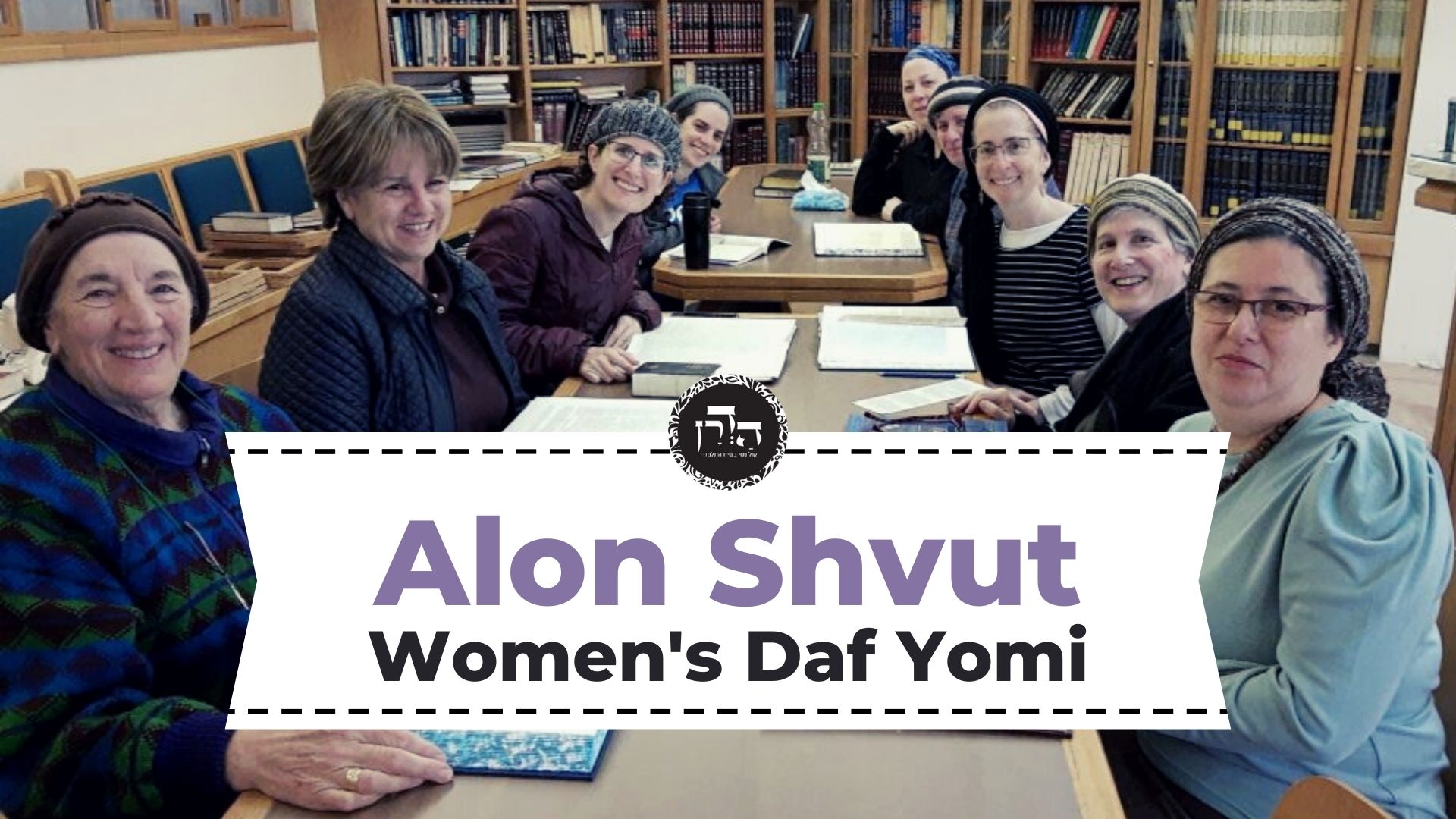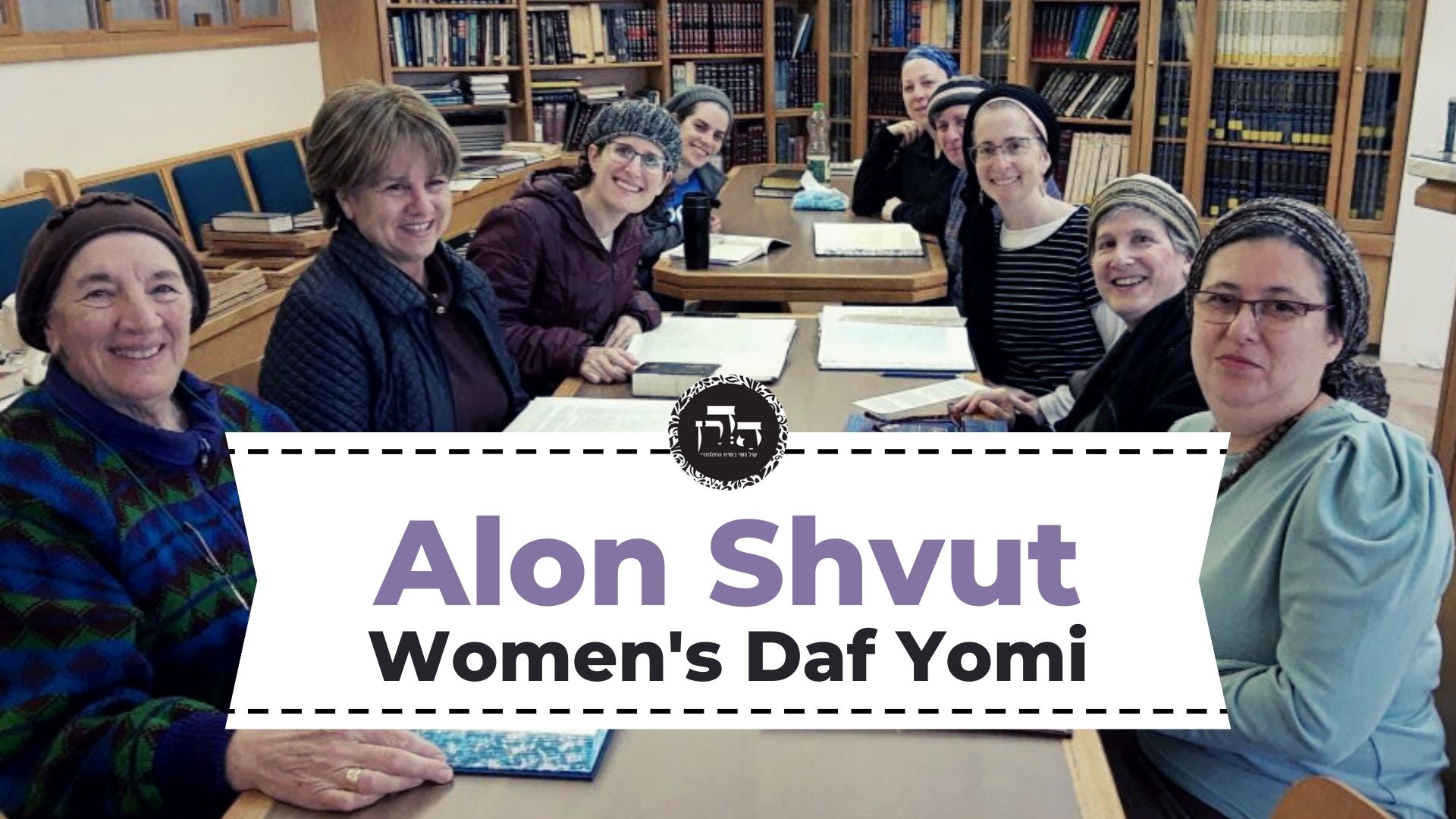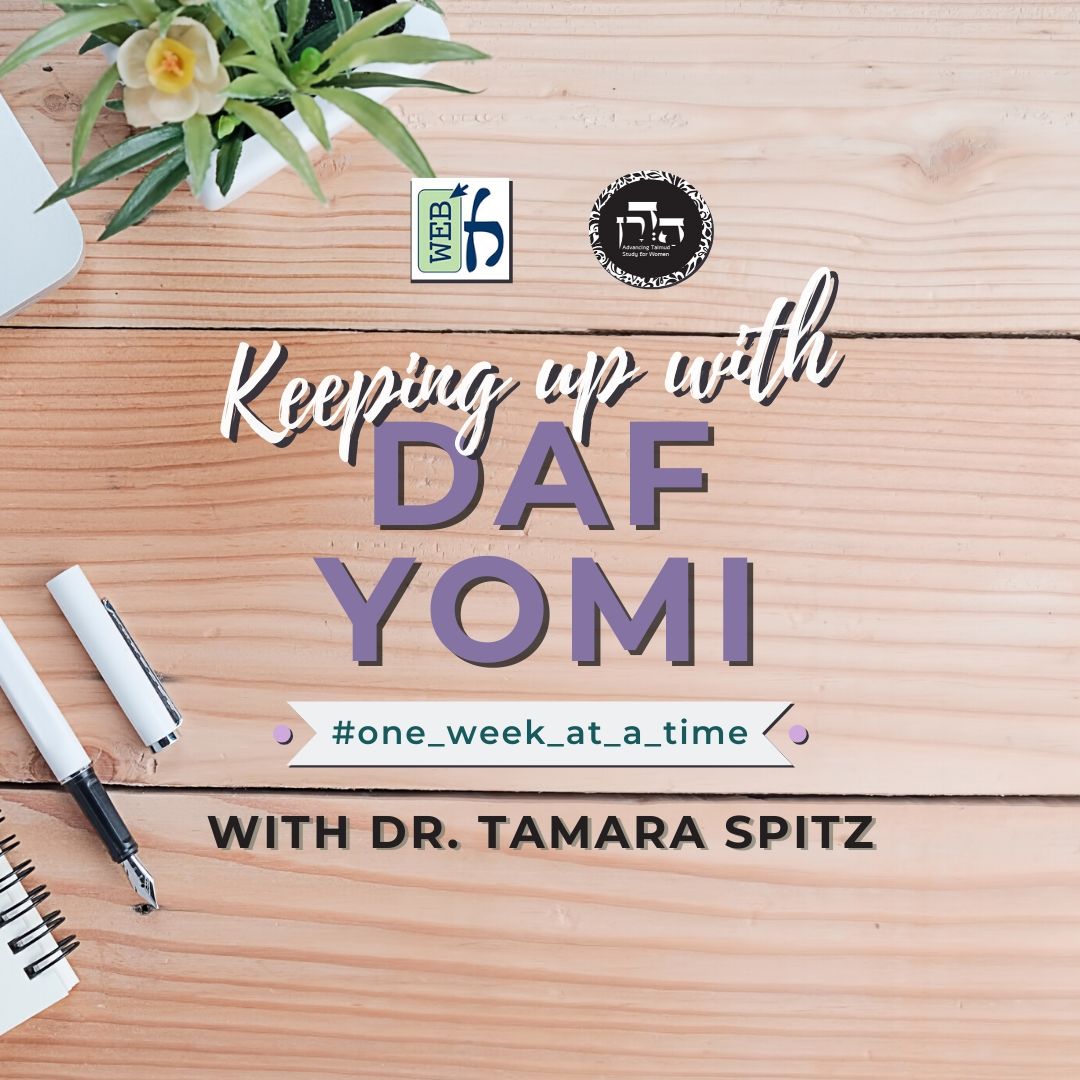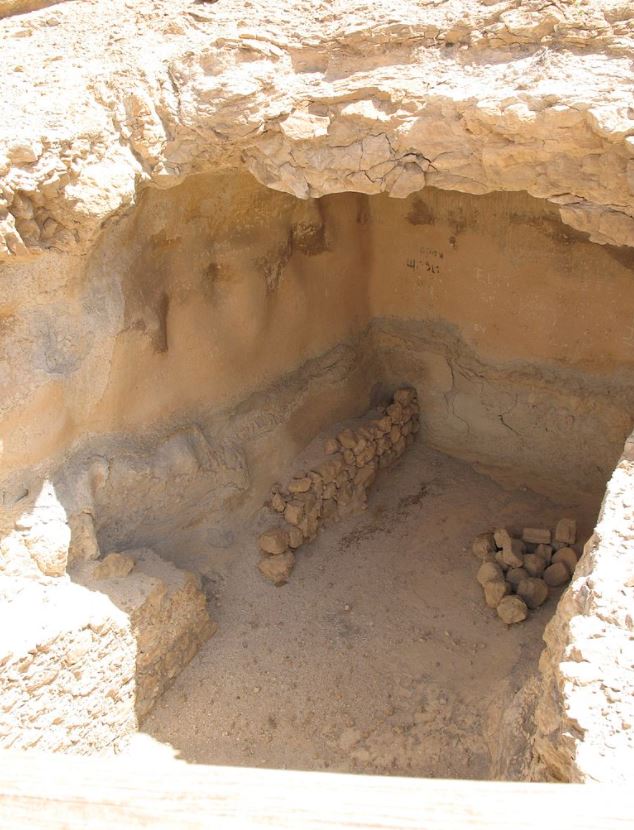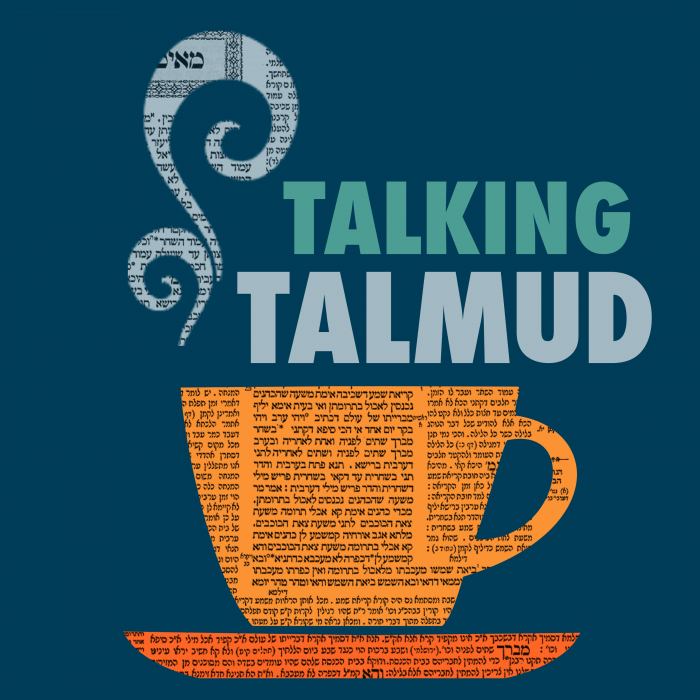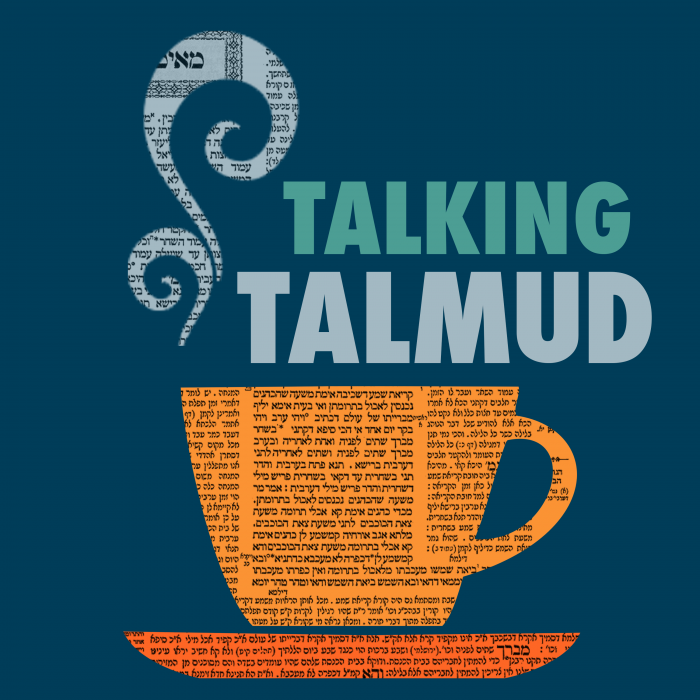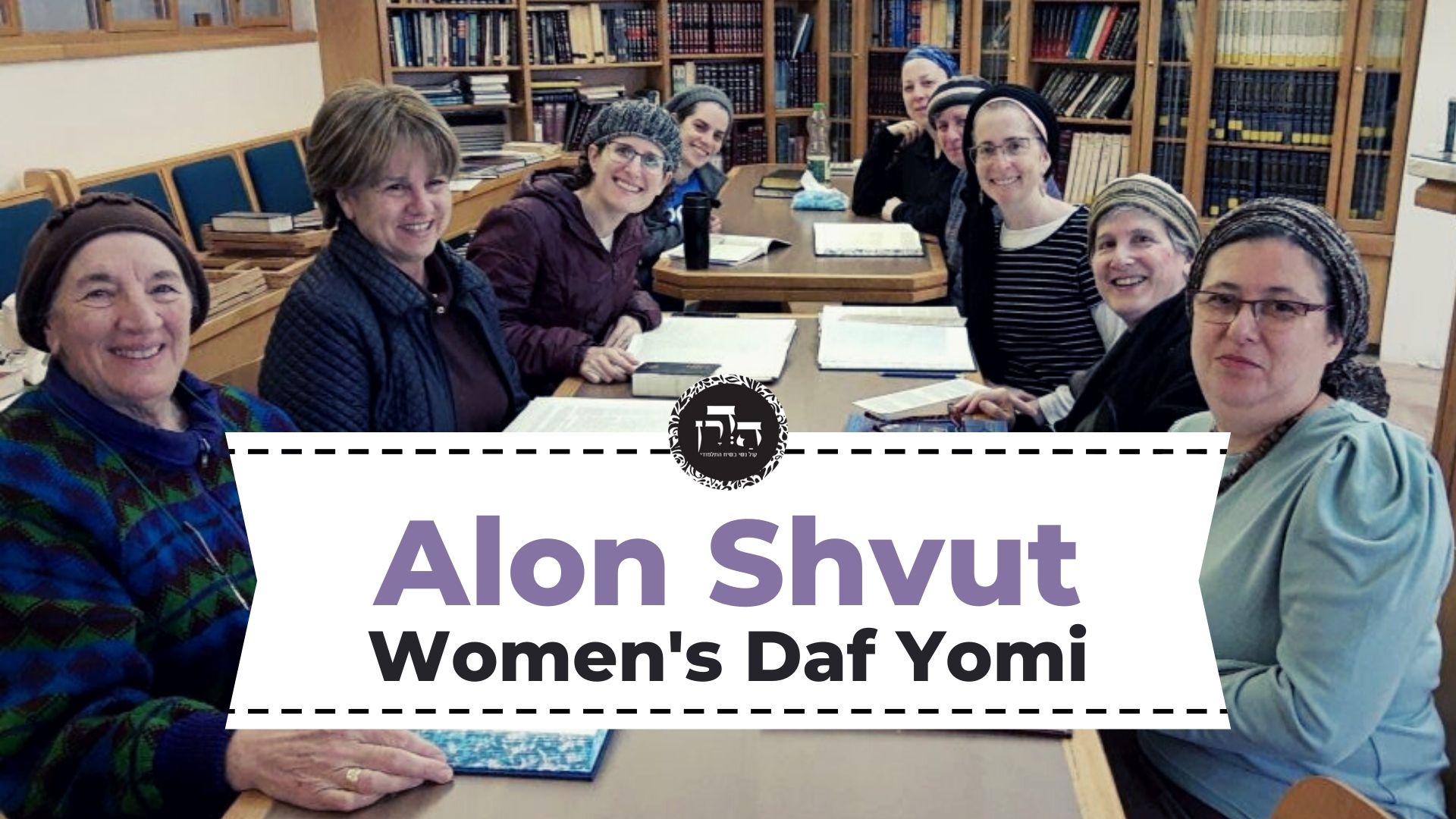Yoma 65
הַכֹּל מוֹדִים שֶׁאִם נִתְכַּפֵּר בְּשֶׁאֵינָהּ אֲבוּדָה — אֲבוּדָה מֵתָה.
Everyone concedes that if the animal one designated as a sin-offering became lost, and he designated another animal in its stead and then found the first animal, if he gained atonement through the one that was not lost, i.e., the second one, the one that was lost is left to die.
אֶלָּא לְרַב הָוֵה לֵיהּ כְּמַפְרִישׁ שְׁתֵּי חַטָּאוֹת לְאַחְרָיוּת, וְאָמַר רַבִּי אוֹשַׁעְיָא: הִפְרִישׁ שְׁתֵּי חַטָּאוֹת לְאַחְרָיוּת — מִתְכַּפֵּר בְּאַחַת מֵהֶם, וְהַשְּׁנִיָּה תִּרְעֶה.
However, according to the opinion of Rav, who rules that the remaining goat from the first pair is the one that is sacrificed, that goat was never disqualified, and the extra goat from the second pair was designated to serve the same purpose as the remaining goat. This is like one who designates two sin-offerings as a guarantee, so that if he loses one of them he will still be able to bring the other one. And Rabbi Oshaya said that all agree that if one separated two sin-offerings as a guarantee, he gains atonement through one of them, and the second is left to graze until it becomes unfit. Consequently, even the sin-offering of an individual is not left to die in this case.
כֵּיוָן דְּאָמַר רָבָא: רַב סָבַר לַהּ כְּרַבִּי יוֹסֵי דְּאָמַר מִצְוָה בָּרִאשׁוֹן, מֵעִיקָּרָא כְּמַפְרִישׁ לְאִיבּוּד דָּמֵי.
The Gemara answers: Since Rava said that Rav holds in accordance with the opinion of Rabbi Yosei, who said that the mitzva should be performed with the first animal, when one designates the second animal, it is considered from the beginning to be comparable to an offering separated in order to be lost. In that case, if it is the sin-offering of an individual, the second animal is left to die.
תְּנַן, רַבִּי יְהוּדָה אוֹמֵר: תָּמוּת. בִּשְׁלָמָא לְרַבִּי יוֹחָנָן דְּאָמַר שֵׁנִי שֶׁבְּזוּג רִאשׁוֹן יִרְעֶה, לְרַבִּי יְהוּדָה יָמוּת — מִתְכַּפֵּר בַּשֵּׁנִי שֶׁבְּזוּג שֵׁנִי.
We learned in the mishna that Rabbi Yehuda says: It should be left to die. Granted, according to the opinion of Rabbi Yoḥanan, who said that the second goat of the first pair should be left to graze, according to Rabbi Yehuda, who said it should be left to die, he nonetheless gains atonement with the second goat of the second pair.
אֶלָּא לְרַב דְּאָמַר שֵׁנִי שֶׁבְּזוּג שֵׁנִי יִרְעֶה, לְרַבִּי יְהוּדָה יָמוּת — לְרַבִּי יְהוּדָה בְּמַאי מִיכַּפַּר? מִי סָבְרַתְּ רַבִּי יְהוּדָה אַשֵּׁנִי שֶׁבְּזוּג שֵׁנִי קָאֵי? רַבִּי יְהוּדָה אַשֵּׁנִי שֶׁבְּזוּג רִאשׁוֹן קָאֵי.
However, according to Rav, who said that the second goat of the second pair should be left to graze, and according to Rabbi Yehuda it should be left to die, then according to Rabbi Yehuda he cannot sacrifice either of the two goats: The first goat may not be sacrificed because Rabbi Yehuda holds that disqualified animals are permanently rejected, and the second goat must be left to die. With which goat will he gain atonement? The Gemara answers: Do you maintain that Rabbi Yehuda was referring to the second goat of the second pair when he said it should be left to die? Rabbi Yehuda was referring to the second goat of the first pair. The second goat of the second pair is sacrificed.
וְאִיכָּא דְּקָא מוֹתֵיב הָכִי: וְעוֹד אָמַר רַבִּי יְהוּדָה: נִשְׁפַּךְ הַדָּם יָמוּת הַמִּשְׁתַּלֵּחַ, מֵת הַמִּשְׁתַּלֵּחַ יִשָּׁפֵךְ הַדָּם.
There are those who raised this objection from the statement of Rabbi Yehuda in the mishna. And furthermore, Rabbi Yehuda said: If the blood of the goat sacrificed to God spilled before it was sprinkled, the scapegoat is left to die. Similarly, if the scapegoat dies, the blood of the goat sacrificed to God should be spilled, and two other goats are brought and lots are drawn.
בִּשְׁלָמָא לְרַב, רֵישָׁא פְּלִיגִי בְּחַטַּאת צִבּוּר וְסֵיפָא פְּלִיגִי בְּבַעֲלֵי חַיִּים. אֶלָּא לְרַבִּי יוֹחָנָן, מַאי ״וְעוֹד״. קַשְׁיָא.
Granted, according to Rav, in the first clause of the mishna they disagree with regard to a communal sin-offering. According to the Rabbis the second animal is left to graze, whereas according to Rabbi Yehuda it is left to die. And in the latter clause they disagree with regard to whether animals that become disqualified as offerings are permanently rejected. According to the Rabbis they are not rejected and therefore the first goat is sacrificed, whereas Rabbi Yehuda holds that they are rejected and therefore the first goat is left to die and the second goat is sacrificed. However, according to Rabbi Yoḥanan, what does the term: And furthermore, in the mishna indicate? Even the Rabbis agree that the remaining goat from the first pair is permanently disqualified. The Gemara comments that indeed, this is difficult.
וְעוֹד אָמַר רַבִּי יְהוּדָה: נִשְׁפַּךְ הַדָּם — יָמוּת הַמִּשְׁתַּלֵּחַ. בִּשְׁלָמָא נִשְׁפַּךְ הַדָּם יָמוּת הַמִּשְׁתַּלֵּחַ — דְּאַכַּתִּי לָא אִיתְעֲבִיד מִצְוְתֵיהּ.
§ It was taught in the mishna: And furthermore, Rabbi Yehuda said: If the blood of the goat sacrificed to God spilled before it was sprinkled, the scapegoat should be left to die. Similarly, if the scapegoat dies, the blood of the goat sacrificed to God should be spilled. The Gemara asks: Granted, if the blood of the goat sacrificed to God spilled, the scapegoat should be left to die, as the mitzva of the blood has not yet been performed, as it was not sprinkled in the prescribed manner.
אֶלָּא מֵת הַמִּשְׁתַּלֵּחַ, אַמַּאי יִשָּׁפֵךְ הַדָּם? הָא אִיתְעֲבִיד לֵיהּ מִצְוְתֵיהּ!
However, if the scapegoat dies, why should the blood of the goat sacrificed to God be spilled? The mitzva of the scapegoat has already been performed. The only essential detail with regard to the scapegoat is the lottery, which has already been performed by the priest. Sending it to Azazel and pushing it off a cliff are carried out by an appointed person and while they are prescribed ab initio, they are not indispensable. After the fact, if the goat dies in some other way, the obligation has been fulfilled.
אָמְרִי דְּבֵי רַבִּי יַנַּאי: אָמַר קְרָא: ״יׇעֳמַד חַי לִפְנֵי ה׳ לְכַפֵּר״, עַד מָתַי יְהֵא זָקוּק לִהְיוֹת חַי — עַד שְׁעַת מַתַּן דָּמִים שֶׁל חֲבֵירוֹ.
The Sages of the house of Rabbi Yannai said that the verse states: “But the goat, on which the lot fell for Azazel, shall be stood alive before the Lord, to make atonement over him, to send him away to Azazel into the wilderness” (Leviticus 16:10). Until when must the scapegoat be alive? Until the blood of its counterpart is sprinkled, and if it dies before, the blood is disqualified.
תְּנַן הָתָם: בְּנֵי הָעִיר שֶׁשָּׁלְחוּ אֶת שִׁקְלֵיהֶן וְנִגְנְבוּ אוֹ שֶׁאָבְדוּ, אִם נִתְרְמָה תְּרוּמָה — נִשְׁבָּעִין לְגִזְבָּרִין.
We learned in a mishna there (Shekalim 2:1): If residents of a city sent their shekels to the Temple with a messenger, and the shekels were stolen or were lost along the way; if the funds were already collected, i.e., the coins for the new year’s offerings were taken from the chamber before the money was stolen, the messengers take an oath to the treasurers of the Temple that they did not unlawfully use the shekels, but that they were taken unbeknownst to them or by force. This is because once the necessary coins have been removed, all other coins that have been dedicated for this purpose are considered Temple property wherever they are, and their subsequent theft does not change that status. If the messengers take this oath, they are exempt from monetary liability.
וְאִם לָאו — נִשְׁבָּעִין לִבְנֵי הָעִיר, וּבְנֵי הָעִיר שׁוֹקְלִין אֲחֵרִים תַּחְתֵּיהֶן.
And if the funds were not yet collected when these coins were stolen, the coins are still considered the property of those who dedicated them to the Temple, and therefore the messengers take an oath to the residents of the city, and the residents of the city donate other shekels to the Temple in their stead.
נִמְצְאוּ אוֹ שֶׁהֶחְזִירוּם הַגַּנָּבִים — אֵלּוּ וָאֵלּוּ שְׁקָלִים הֵם, וְאֵין עוֹלִין לָהֶן לְשָׁנָה הַבָּאָה. רַבִּי יְהוּדָה אוֹמֵר: עוֹלִין לָהֶן לְשָׁנָה הַבָּאָה.
If the shekels that were lost are found or the thieves returned them, both these and those are shekels, i.e., they remain sanctified, but they do not count toward the amount due the following year. The next year the members of that city must donate new shekels; they have not fulfilled the second year’s obligation by having given twice the previous year. Rabbi Yehuda says: They do count toward the following year.
מַאי טַעְמָא דְּרַבִּי יְהוּדָה? אָמַר רָבָא: קָסָבַר רַבִּי יְהוּדָה חוֹבוֹת שֶׁל שָׁנָה זוֹ קְרֵיבוֹת לְשָׁנָה הַבָּאָה.
The Gemara asks: What is the reason for the opinion of Rabbi Yehuda? Rava said: Rabbi Yehuda holds that the obligations of this year are also brought the following year, and therefore it is possible to fulfill one’s obligation for the next year by using the shekels of this year.
אֵיתִיבֵיהּ אַבָּיֵי: פַּר וְשָׂעִיר שֶׁל יוֹם הַכִּפּוּרִים שֶׁאָבְדוּ וְהִפְרִישׁ אֲחֵרִים תַּחְתֵּיהֶן, וְכֵן שְׂעִירֵי עֲבוֹדָה זָרָה שֶׁאָבְדוּ וְהִפְרִישׁ אֲחֵרִים תַּחְתֵּיהֶן — כּוּלָּן יָמוּתוּ, דִּבְרֵי רַבִּי יְהוּדָה. רַבִּי אֱלִיעֶזֶר וְרַבִּי שִׁמְעוֹן אוֹמְרִים: יִרְעוּ עַד שֶׁיִּסְתָּאֲבוּ וְיִמָּכְרוּ, וְיִפְּלוּ דְּמֵיהֶם לִנְדָבָה, שֶׁאֵין חַטַּאת צִבּוּר מֵתָה. אֲמַר לֵיהּ:
Abaye raised an objection to this explanation. It was taught that if the bull and goat of Yom Kippur were lost and one designated others in their stead, and similarly if the goats which atone for a communal transgression of idol worship by instruction of the court were lost and he designated others in their stead, and the original animals were found, all the original animals should be left to die, and cannot be sacrificed at a later time. This is the statement of Rabbi Yehuda. Rabbi Eliezer and Rabbi Shimon say: They should be left to graze until they become unfit. Then they are sold, and the money received in their sale will go to the purchase of a public gift-offering, as a communal sin-offering is not left to die. According to Rabbi Yehuda, if the obligations of this year may be brought the following year, the bull and goat of Yom Kippur that were lost should be sacrificed the following year, and not left to die. Rava said to him:
קׇרְבְּנוֹת צִבּוּר קָא אָמְרַתְּ? שָׁאנֵי קׇרְבְּנוֹת צִבּוּר, כִּדְרַבִּי טָבִי אָמַר רַבִּי יֹאשִׁיָּה. דְּאָמַר רַבִּי טָבִי אָמַר רַבִּי יֹאשִׁיָּה: אָמַר קְרָא: ״זֹאת עוֹלַת חֹדֶשׁ בְּחׇדְשׁוֹ״, אָמְרָה תּוֹרָה: חַדֵּשׁ וְהָבֵא לִי קׇרְבָּן מִתְּרוּמָה חֲדָשָׁה.
You speak of communal offerings? Communal offerings are different, in accordance with what Rabbi Tavi said in the name of Rabbi Yoshiya. As Rabbi Tavi said that Rabbi Yoshiya said that the verse states: “This is the burnt-offering for every New Moon upon its renewal throughout the months of the year” (Numbers 28:14). The Torah said: Renew and bring Me an offering from the new contribution. This indicates that communal offerings must be brought from the donations of the current year and not from the donations of the previous year.
תִּינַח שָׂעִיר, פַּר מַאי אִיכָּא לְמֵימַר? גְּזֵירָה פַּר אַטּוּ שָׂעִיר.
The Gemara challenges this solution: This works out well with regard to the Yom Kippur goat, which is a communal offering and is purchased with money from the Temple treasury. However, with regard to the High Priest’s bull which he pays for himself and which is considered an individual offering, what is there to say? The Gemara answers: There is a rabbinic decree with regard to the bull due to the goat.
וּמִשּׁוּם גְּזֵירָה יָמוּתוּ? וְעוֹד: הָא דְּרַבִּי טָבִי אָמַר רַבִּי יֹאשִׁיָּה גּוּפַהּ מִצְוָה הִיא. דְּאָמַר רַב יְהוּדָה אָמַר שְׁמוּאֵל: קׇרְבְּנוֹת צִבּוּר הַבָּאִין בְּאֶחָד בְּנִיסָן — מִצְוָה לְהָבִיא מִן הֶחָדָשׁ, וְאִם הֵבִיא מִן הַיָּשָׁן — יָצָא, אֶלָּא שֶׁחִסֵּר מִצְוָה!
The Gemara expresses surprise: Is it right that due to a rabbinic decree the offerings should be left to die instead of being left to graze? And furthermore, this statement that Rabbi Tavi said in the name of Rabbi Yoshiya is itself a mitzva ab initio, but is not indispensable. As Rav Yehuda said that Shmuel said: With regard to communal offerings that are brought on the first of Nisan, it is a mitzva to bring them from the new year’s shekel contributions. However, if he brought them from the old shekels that were donated during the previous year he has fulfilled his obligation, but he lacked the mitzva, i.e., he did not perform the procedure in the proper manner. It is difficult to argue that due to this inessential detail the Sages would issue a decree that the High Priest’s bull should be left to die.
אֶלָּא אָמַר רַבִּי זֵירָא: לְפִי שֶׁאֵין הַגּוֹרָל קוֹבֵעַ מִשָּׁנָה לַחֲבֶרְתָּהּ. וְנַיְיתֵי וְנַגְרֵיל? גְּזֵירָה שֶׁמָּא יֹאמְרוּ הַגּוֹרָל קוֹבֵעַ מִשָּׁנָה לַחֲבֶרְתָּהּ.
Rather, Rabbi Zeira said that the reason the bull and goat of Yom Kippur are left to die is because the lottery does not establish designations from one year to another. Therefore, a goat designated by the lottery one year is not eligible for use the next year. The Gemara challenges this explanation: But let us bring this goat and another one and draw lots again. The Gemara responds: It is a rabbinic decree that was enacted lest people say that the lottery establishes designations from one year to another.
הָא תִּינַח שָׂעִיר, פַּר מַאי אִיכָּא לְמֵימַר? גְּזֵירָה פַּר אַטּוּ שָׂעִיר. וּמִשּׁוּם גְּזֵירָה יָמוּתוּ?
The Gemara challenges: This works out well with regard to the goat, but with respect to the bull of the High Priest, which is not chosen by lottery, what is there to say? The Gemara answers: There is a rabbinic decree with regard to the bull due to the goat. The Gemara challenges further: Is it right that due to a rabbinic decree the offerings should be left to die instead of being left to graze? Therefore, this answer should be rejected.
אַמְרוּהָ רַבָּנַן קַמֵּיהּ דְּאַבָּיֵי: גְּזֵירָה מִשּׁוּם חַטָּאת שֶׁמֵּתוּ בְּעָלֶיהָ. הָא תִּינַח פַּר, שָׂעִיר מַאי אִיכָּא לְמֵימַר? גְּזֵירָה שָׂעִיר אַטּוּ פַּר.
The Rabbis stated another solution before Abaye: It is a rabbinic decree, due to a concern that the bull will become a sin-offering whose owners have died, since the High Priest might die during the year. The Gemara responds: This works out well with regard to the bull, but as for the goat, which is a communal offering, what is there to say? The Gemara answers: There is a rabbinic decree with regard to the goat due to the bull.
וּמִשּׁוּם גְּזֵירָה יָמוּתוּ? אֶלָּא: גְּזֵירָה מִשּׁוּם חַטָּאת שֶׁעִבְּרָה שְׁנָתָהּ. גְּזֵירָה? הִיא גּוּפַהּ חַטָּאת שֶׁעִבְּרָה שְׁנָתָהּ הִיא!
The Gemara asks: Is it right that due to a rabbinic decree the offerings should be left to die instead of being left to graze? Rather, it is a rabbinic decree due to a concern that the goat will become a sin-offering whose year has passed. A goat may not be brought as a sin-offering once it is more than a year old, and there is a concern that the goat will be too old by the Yom Kippur of the following year. The Gemara expresses surprise: Is this a rabbinic decree? It is certainly a sin-offering whose year has passed, as the goat will certainly be more than a year old by the following Yom Kippur.
הָא לָא קַשְׁיָא, כְּרַבִּי. דְּתַנְיָא: ״שָׁנָה תְּמִימָה״, מוֹנֶה שְׁלֹשׁ מֵאוֹת וְשִׁשִּׁים וַחֲמִשָּׁה יוֹם כְּמִנְיָן יְמוֹת הַחַמָּה, דִּבְרֵי רַבִּי. וַחֲכָמִים אוֹמְרִים: מוֹנֶה שְׁנֵים עָשָׂר חֹדֶשׁ מִיּוֹם לְיוֹם.
The Gemara responds: This is not difficult, as it is possible that the goat will not be disqualified, in accordance with the opinion of Rabbi Yehuda HaNasi. As it was taught in a baraita: With regard to redeeming houses in a walled city the Torah states: “And if it not be redeemed within the space of a full year” (Leviticus 25:30), which indicates that he counts 365 days, in accordance with the number of days in a solar year; this is the statement of Rabbi Yehuda HaNasi. And the Rabbis say: He counts twelve months from day to day. Therefore, according to the opinion of Rabbi Yehuda HaNasi, if the goat was less than eleven days old on the first Yom Kippur, it will not be disqualified on the following Yom Kippur because it will still be less than 365 days old, as long as the first year was not a leap year. Nevertheless, it is disqualified by rabbinic decree due to a concern that other goats would be used in similar circumstances even if they were more than a year old.



